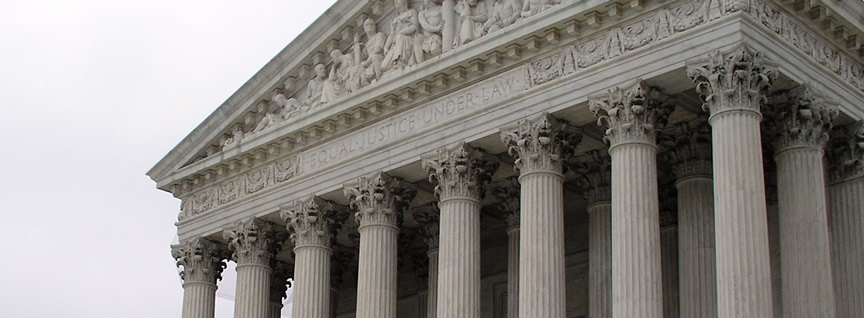 Today the Center for Class Action Fairness filed its opening brief in Frank v. Gaos, a case before the U.S. Supreme Court challenging a class action settlement that provided zero dollars to class members, more than $2 million to the lawyers, and the remaining $5.3 million to third-party organizations unrelated to the case. Those organizations include class counsel’s alma maters and nonprofits to which defendant Google already contributes.
Today the Center for Class Action Fairness filed its opening brief in Frank v. Gaos, a case before the U.S. Supreme Court challenging a class action settlement that provided zero dollars to class members, more than $2 million to the lawyers, and the remaining $5.3 million to third-party organizations unrelated to the case. Those organizations include class counsel’s alma maters and nonprofits to which defendant Google already contributes.
This unfair practice of giving away class members’ money to third-party groups is known as “cy pres.” The cy pres doctrine originated in trust law to protect the interests of the creator of the trust, but has been misappropriated in class action law to facilitate self-dealing by lawyers at the expense of their clients. CCAF is asking the court to set a standard that protects consumers from greedy attorneys who take advantage of this loophole and direct money that belongs to class members to their favorite causes.
CCAF Director of Litigation Ted Frank will be arguing the case before the court and representing himself, along with fellow class member CCAF Senior Attorney Melissa Holyoak.
Ted Frank said the following about the case:
“We hope the Supreme Court’s review will result in a standard that aligns class counsel’s incentives with those of the class. The lawyers claim it’s too difficult to distribute money to such a large class. But we have seen that when courts agree that attorneys should only get paid when their clients do, lawyers magically discover ways to get money to class members. Incentives work.”
Melissa Holyoak said the following about the case:
“The Google settlement epitomizes cy pres abuse in class actions where the money is being funneled to a slush fund for lawyers to send to their alma maters and pet causes rather than their clients.
“Lawyers have a duty to act in the best interest of their clients. In a normal case, if an attorney did this, they would be disbarred. But since the class members are not at the table, they are completely ignored—this is clear corruption of the class action system.”
The case is on appeal from the Ninth Circuit and originates from a privacy lawsuit where plaintiffs sued Google for billions of dollars in statutory damages for alleged federal privacy and other violations regarding their search engine. The Supreme Court will hear argument in Frank v. Gaos this fall.
ABOUT: The Center for Class Action Fairness (CCAF) represents class members against unfair class action procedures and settlements. Since 2009, the center has secured millions of dollars for consumers and shareholders, winning landmark precedents that safeguard consumers, investors, and the courts.
